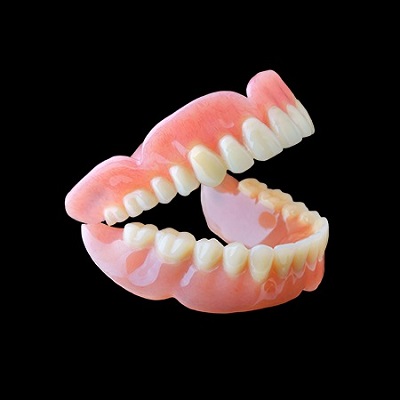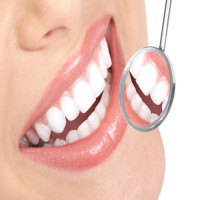How to Choose Between Fixed and Removable Dentures in Dubai

Strong 8k brings an ultra-HD IPTV experience to your living room and your pocket.
When it comes to replacing missing teeth, dentures provide an effective solution to restore function, aesthetics, and confidence. Teeth Dentures Dubai, both fixed and removable dentures are widely available, offering patients different benefits depending on their needs, lifestyle, and budget. Choosing between these options can feel overwhelming, but understanding the pros and cons of each will help you make an informed decision in consultation with your dentist.
Understanding Fixed Dentures:
Fixed dentures, often referred to as implant-supported dentures, are securely anchored to the jawbone using dental implants. This option provides a stable and permanent solution for tooth loss. Fixed dentures can replace several teeth or an entire arch and are particularly recommended for those seeking a long-term, reliable solution.
Types of Fixed Dentures:
All-on-4 Implants: These support an entire arch of teeth with only four implants. This technique minimizes the number of implants needed while providing full stability.
Implant-Supported Bridges: For patients missing several teeth in a row, implant-supported bridges are a good alternative. They involve fewer implants than replacing each tooth with individual crowns.
Fixed Hybrid Dentures: This is a combination of dentures and implants, where a full denture is permanently affixed to dental implants.
Pros of Fixed Dentures:
Stability: Fixed dentures do not move or shift, providing the most secure fit. This is especially beneficial when eating or speaking.
Natural Appearance: Because they are securely fitted to the jawbone, they resemble natural teeth in both function and appearance.
Comfort: Without pressure on the gums, fixed dentures offer greater comfort, reducing the chance of sores or irritation.
Longevity: With proper care, fixed dentures can last many years, making them a durable solution.
Bone Preservation: Dental implants stimulate the jawbone, preventing bone loss that can occur with missing teeth.
Cons of Fixed Dentures:
Cost: Fixed dentures are generally more expensive than removable options because they require dental implants and surgical procedures.
Surgical Procedure: The process of placing implants requires minor surgery, which may involve a longer recovery period.
Maintenance: While they do not need to be removed for cleaning, fixed dentures still require diligent oral hygiene and regular dental visits to ensure long-term success.
Understanding Removable Dentures:
Removable dentures, also known as conventional dentures, are designed to be taken out and put back in daily. These are typically made from acrylic, metal, or a combination of both, and rest on the gums or are supported by surrounding teeth.
Types of Removable Dentures:
Complete Dentures: Used when all teeth are missing in either the upper or lower jaw. They rest on the gums and are secured by suction or adhesive.
Partial Dentures: These are used when some natural teeth remain. Partial dentures are attached to the remaining teeth using metal or plastic clasps.
Snap-In Dentures: These are a type of removable denture that uses implants for a more secure fit, though they can still be taken out for cleaning.
Pros of Removable Dentures:
Cost-Effective: Removable dentures are typically more affordable than fixed dentures, making them accessible to a wider range of patients.
Non-Surgical: Unlike implant-supported fixed dentures, removable dentures do not require surgery, making the process quicker and easier.
Easy Adjustments: Removable dentures can be easily adjusted or replaced if there are changes in the shape of your gums or jaw over time.
Convenience: They are easy to clean because they can be removed. This allows for more thorough cleaning and maintenance.
Cons of Removable Dentures:
Stability: Removable dentures are less stable than fixed dentures and may move or shift while eating or talking, which can cause discomfort or embarrassment.
Bone Loss: Since removable dentures do not stimulate the jawbone like implants do, bone loss may occur over time, altering the fit of the denture.
Comfort: Removable dentures can irritate the gums, especially if they do not fit properly or if adhesive is overused.
Appearance: Over time, removable dentures may become less natural-looking as the shape of your mouth changes.
Key Considerations When Choosing Between Fixed and Removable Dentures:
1. Your Budget:
The cost of treatment plays a significant role in choosing between fixed and removable dentures. Fixed dentures, particularly those involving dental implants, are more expensive due to the surgical procedure and materials involved. Removable dentures are more affordable, but they may need to be replaced or adjusted more frequently, which could result in higher long-term costs.
2. Comfort and Fit:
For patients with sensitive gums or discomfort from removable dentures, fixed options may offer a more comfortable and stable solution. Since fixed dentures are anchored to the jaw, they eliminate the movement that often causes gum irritation with removable options.
3. Bone Health:
Dental implants used in fixed dentures stimulate the jawbone, helping to prevent bone loss. If you are concerned about maintaining your jawbone’s structure or have experienced significant bone loss due to missing teeth, fixed dentures may be the best option for preserving oral health.
4. Lifestyle:
Consider your daily routine and how much time and effort you’re willing to invest in denture care. Fixed dentures require less daily maintenance, while removable dentures need to be taken out for cleaning and may need adhesive for a secure fit. If you prefer a low-maintenance solution, fixed dentures might be more convenient.
5. Aesthetics:
Both fixed and removable dentures can restore the appearance of your smile, but fixed dentures tend to look and feel more natural because they are securely attached to the jawbone. Removable dentures may shift, which can affect your smile and speech over time.
6. Time Frame:
Fixed dentures, particularly those involving implants, require more time for treatment, including the surgical procedure and healing period. Removable dentures can be fitted relatively quickly, offering a faster solution for tooth replacement.
7. Durability and Longevity:
While fixed dentures are more durable and can last for many years with proper care, removable dentures generally need to be replaced every 5–7 years due to wear and changes in your gum structure.
Professional Guidance in Dubai:
Dental clinics in Dubai offer advanced technology and expert care to help you make the best decision for your dental health. Some offer 3D imaging to precisely assess your jawbone and create a custom treatment plan, whether you choose fixed or removable dentures. Additionally, many clinics provide comprehensive consultations to help you understand the benefits and limitations of each option, taking into account your unique needs, budget, and long-term oral health goals.
Note: IndiBlogHub features both user-submitted and editorial content. We do not verify third-party contributions. Read our Disclaimer and Privacy Policyfor details.







